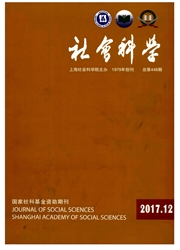

 中文摘要:
中文摘要:
在快速城市化的推拉下,一些城郊村落在组织形态、成员福利、社会关系等方面表现出一些明显的“类单位制”特征,被称为“村落单位化”。村落单位化为村民提供的多种福利保障,减轻了由村民向市民角色转换的压力,延续了“村落共同体”的存在,避免了由村落迅速解体而导致的原子化危机,有助于社会管理的展开。但“内外有别”的福利设置以及精英主导下的村落权力资源配置,导致城乡结合部社会管理呈现出“非均衡性”特点,加速了村落权力的集中化和自治选举固化,使得城乡结合部村落社会管理缺乏全面而稳定的着力点,面临新的“二元区隔”困局的挑战。
 英文摘要:
英文摘要:
At the beginning of the new century, under the impact of urbanization, suburban villages have showed some similar characteristics as the Danwei system in its organization form, the member's welfare, the social relations, and so on, and this kind of phenomena is called "the village organized as Danwei". The village organized as Danwei provides many kinds of welfare and security for the villagers to help them successfully transfer from villagers to citizens, maintains the existence of " the community" to prevent the atomization crisis from the rapid in the urban-rural areas, which contributed to the village village disintegration, and contributes to the village power centralization, the failure of autonomy election, and the lack of comprehensive and stable key point of social administration. Thus the social administration of urban-rural areas has to face the new challenge of the dualistic segmentation.
 同期刊论文项目
同期刊论文项目
 同项目期刊论文
同项目期刊论文
 期刊信息
期刊信息
